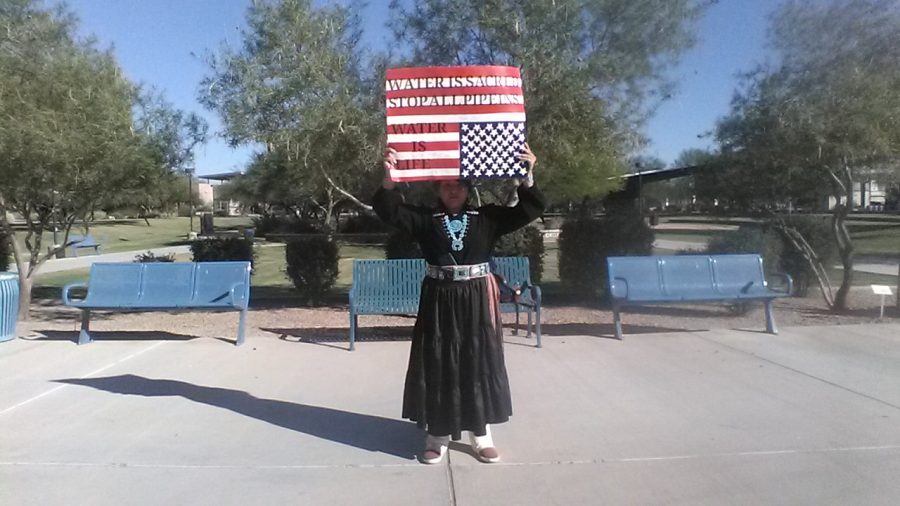SCC student takes a stand against Dakota Access pipeline
December 5, 2016
A Native American student was willing to bask under the sun for hours just to protest the construction of an oil pipeline in North Dakota.
Cheynell Begay is an SCC student and a member of the Navajo tribe. Clad in traditional attire, she stood holding a poster with protest messages on each side. One side of this poster displayed United States flags upside down and read “Water is sacred, stop the oil pipeline project, water is life.”
The other side of this poster displayed the Arizona state flag “stop the oil pipeline project Access Dakota, water is sacred.” She explained that the protest is a manifestation of solidarity for fellow Indian communities of the Standing Rock Sioux tribe in North Dakota which, until Sunday, had been threatened by the Dakota Access project.
“I do this because I care about them,” Begay said. “I do not want them to suffer because of their water and the land polluted by oil.”
Begay said she was not embarrassed and afraid to stand alone for hours in order to protest in an open area of campus. Her stand against the pipeline and her handmade poster attracted a number of students, and several took pictures with her.
Manuel Pino, professor of sociology at the American Indian Studies program at SCC, explained the struggle of Native Americans – like those at Standing Rock – to maintain the existence of their lives.
“From generation to generation, our ancestors assume the water is life,” Pino said. “Because the water is considered sacred.”
The opposition inside and outside North Dakota centers on contamination of water that runs close to the pipeline. The distribution of crude oil – up to 570,000 barrels a day – would have contaminated the water sources of local rivers and cut through sacred places to the Standing Rock Sioux. The project may still be revived by President-elect Donald Trump, but it had been proposed that it would stretch nearly 1,200 miles and connect four states: North Dakota, South Dakota, Iowa and Illinois.
For now, however, Begay is one of many vindicated by the Army Corps of Engineers to block the pipeline’s route.


